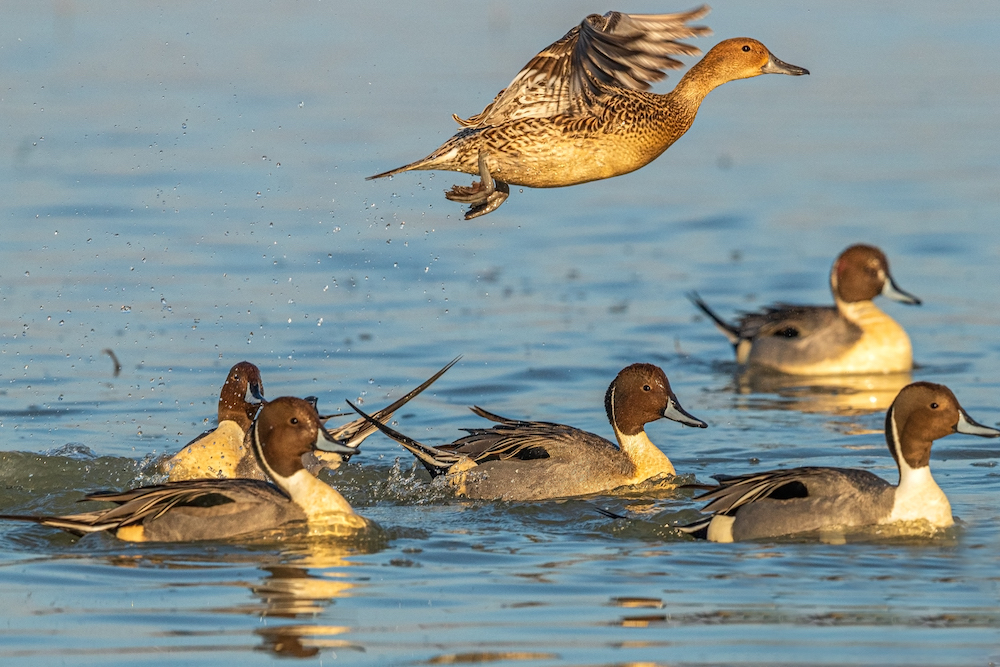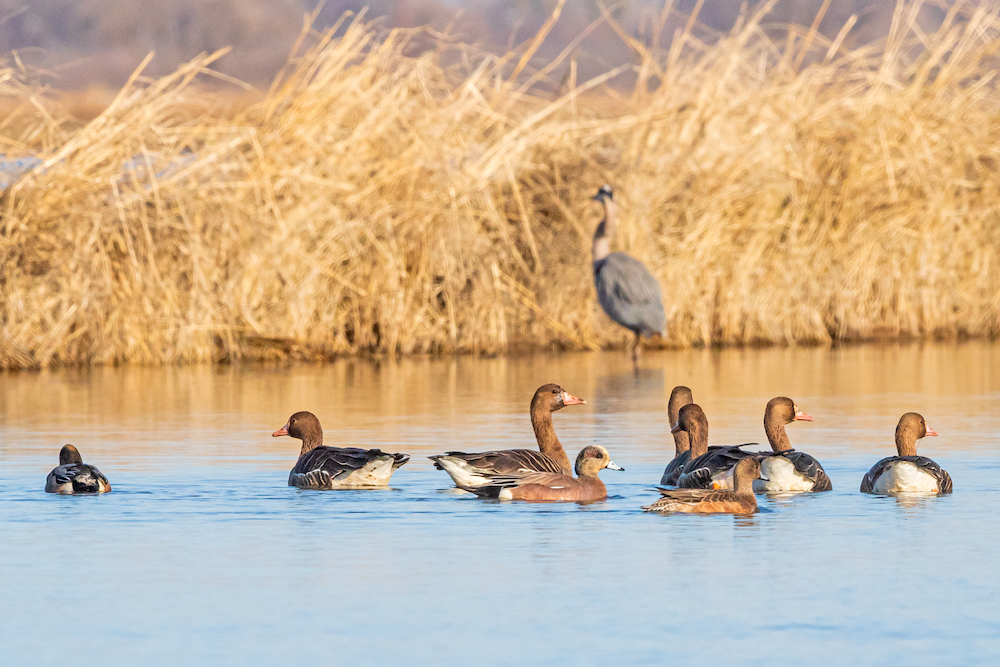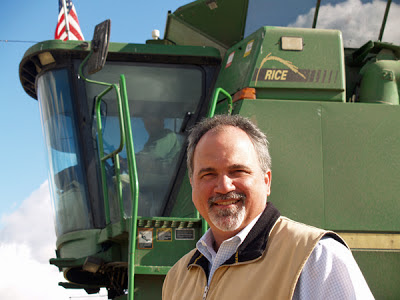Helping Our Ricelands Wildlife Survive the Drought
By Paul Buttner
Through this drought in the Sacramento Valley, when it will be tough to be a bird or a fish, the California rice industry is very concerned about what lies ahead for the wildlife we hold so dear. Normally, we provide nearly 300,000 acres of essential winter-flooded habit for millions of migrating birds that rely on our fields each year. This reliance, in a state that has lost more than 90 percent of its wetlands, is significant for ducks, geese, shorebirds, wading birds and many diverse species of wildlife. Wintering ducks, as just one example, get over 50 percent of their food from our rice fields.

In anticipation of the reduced flooded habitat expected this Fall we surveyed our water districts regarding what levels of winter-flooding they are predicting. For perspective, we estimate our 15-year average amount of winter-flooded acres is about 270,000 acres. Due to the extent of water cuts this growing season and even more significant cuts in our growers’ access to winter water, we now project that we will only be able to provide winter water on about 65,000 acres. This only about 25 percent of what rice normally provides – woefully short of what’s needed.

Our growers who did plant rice this year will be harvesting around September. With no access to water from their water districts, growers will likely turn to additional tillage operations to advance rice straw decomposition without winter flooding. Many of these growers have access to groundwater. However, due to excessive operational costs, very few growers will operate these pumps when they can manage their straw with extra tillage at a much lower cost. This is the basis for the California rice industry and several of its bird conservation partners to request $10 million of emergency environmental funds from Governor Newsom and the Legislature to help save Pacific Flyway wildlife. But time is of the essence. If these funds are not deployed by the end of this summer, preferably sooner, it is hard to imagine how we could get contracts in place with growers to turn on groundwater pumps instead of tractors to decompose rice straw this fall.






